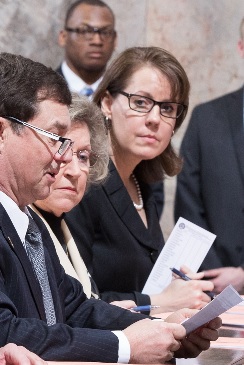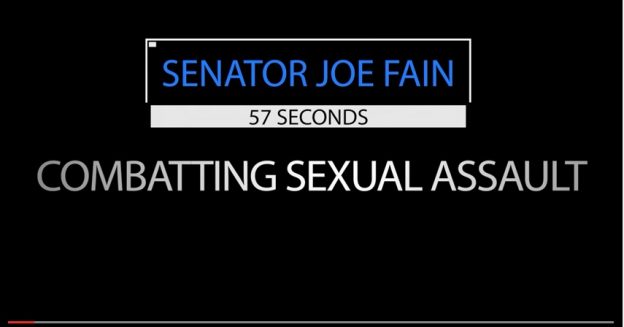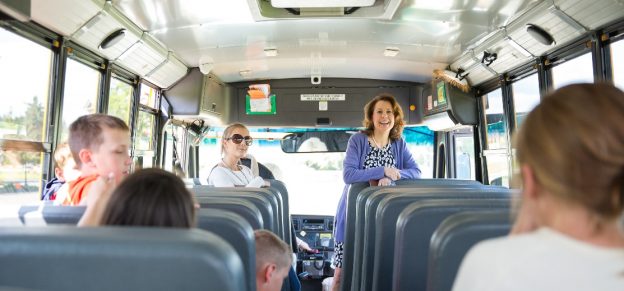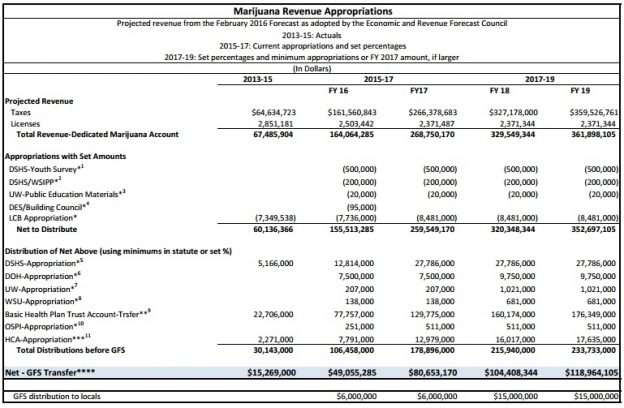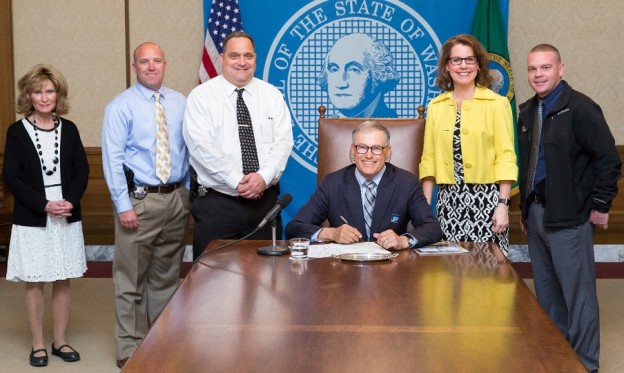It was 2011, and Clark County detective Jason Granneman was fed up. As a law-enforcement officer he came into daily contact with individuals who were serving the remainder of their sentences in the community, instead of behind bars, sometimes for months or even years. Officially they are in “community corrections” status; however, because they are under the sole supervision of the state Department of Corrections, Granneman and his law-enforcement colleagues refer to them as “DOC active.”
Granneman was fed up because state law prohibited him from detaining, searching or arresting DOC-active persons. It didn’t matter if they violated the signed agreement setting the terms of their community release, which could mean staying away from certain places or certain people or avoiding alcohol or other conditions, depending on the case. Even alerting DOC that someone under its supervision wasn’t upholding his or her signed accountability agreement resulted in limited action.
Spurred by the memory of the four Lakewood police officers who were murdered in November 2009 by an individual under community-corrections supervision, Granneman came to a realization: if someone was going to make a change, it would have to be him.
Taking his idea to the Capitol, Granneman immediately met unexpectedly fierce resistance from DOC, as well as many legislators. Looking back, he admits the first draft of the policy change he proposed was too broad.
The idea was shelved until, in 2015, Granneman met with his neighbor Sen. Ann Rivers and explained how the hands-off approach to DOC-active persons was creating not only a public-safety hazard, but also putting law-enforcement officers at greater risk. They began to work together on a more focused solution and a strategy for securing legislative approval.
“The state had put the public’s first line of defense directly in harm’s way. Jason and other officers were encountering DOC-active folks every day but lacked the tools to appropriately deal with those who had gotten out of line. This is the kind of public-safety issue that makes my job in Olympia truly meaningful, so I got on board immediately with what he wanted to achieve,” said Rivers, R-La Center. “It seemed like a no-brainer to simply allow law enforcement officers to partner with their DOC counterparts and make sure people follow the rules while serving out their sentences.”
Despite the new collaboration between senator and sheriff’s deputy, the updated policy proposal was once again greeted with contention from DOC.
Unwilling to back down, Rivers got Granneman, key lawmakers and representatives of DOC and the Washington Council of Police and Sheriffs together in a room and began hammering out a solution acceptable to all sides.
Granneman describes the end result as “a game changer” – Senate Bill 6459, which was filed by Rivers and won overwhelming legislative approval in early March. Signed April 1 by Gov. Jay Inslee, the new law allows a law-enforcement officer to notify DOC when persons under community-corrections supervision violate the terms of their release. Additionally, law enforcement is now permitted to detain, search and make arrests on new crimes when committed by a DOC-active individual.
“It was a challenge to reach an agreement that brought everyone on board, but the final product will be a force-multiplier for the entire state of Washington,” Granneman said. “Now law enforcement has shared authority with DOC and the benefit is going to be huge. This will mean more safety for communities and for the officers who run across people who are serving community corrections, because it holds those offenders accountable.
“My peers and I appreciate Senator Rivers’ willingness to take on this issue,” Granneman added. “Without her tenacity it would have remained just an idea.”
PHOTO CAPTION: Jason Granneman (on Gov. Inslee’s left) and members of Clark County’s law enforcement community join Sen. Rivers at a ceremonial bill signing Monday.
 Adapting Alaska’s innovative hatchery approach could help feed orca sooner
Adapting Alaska’s innovative hatchery approach could help feed orca sooner











